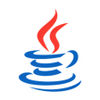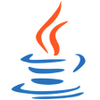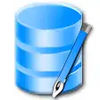The MongoDB Database
The MongoDB Database
Vote: (1 votes)
Program license: Free
Developer: GitHub
Works under: Windows
Vote:
Program license
(1 votes)
Free
Developer
GitHub
Works under:
Windows
Pros
- Flexible document-oriented data model
- Scalable across high-volume datasets
- User-friendly JavaScript interface
- Supports a wide range of programming languages
- Open-source with a vibrant community
Cons
- Lacks certain SQL features like JOINs and Global transactions
- May require a learning curve for those accustomed to SQL databases
A Robust Database for Modern Data Needs
MongoDB is a prominent figure in the world of NoSQL databases, offering a document-oriented storage system that challenges the conventional row-and-column model of relational databases. Its agility, scalability, and versatile handling of data make it an attractive option for businesses grappling with large, complex datasets that don't fit neatly into traditional schemas.
Flexible Data Modeling
At the core of MongoDB is its document-oriented structure, which uses JSON-like documents with optional schemas to store data. This design provides a level of flexibility that is especially advantageous for applications requiring rapid development and iterations. Documents in collections can have varying fields, catering to the dynamic nature of modern applications.
Scalability and Performance
Handling large volumes of data is where MongoDB truly shines. Its performance remains consistent and reliable even when managing vast datasets, thanks to the efficient indexing and storage mechanisms it employs. MongoDB allows for both vertical and horizontal scaling, meaning it can grow with your organization's data needs by simply adding more servers or by beefing up existing ones, providing a tailored solution that evolves with the demand.
User-Friendly Interface and Robust Features
For those who interact with the database, MongoDB's shell offers a JavaScript-based interactive environment that complements its ease of use. Developers can appreciate the rich query language and powerful aggregation framework that MongoDB provides, allowing for sophisticated data retrieval and manipulation.
Interoperability and Integration
Integration is seamless with MongoDB, as it natively supports a vast array of programming languages, including but not limited to C, C++, C#, Java, Python, Ruby, and Go. This diversity ensures MongoDB can slot into almost any development environment with minimal friction, making it a versatile tool for a wide range of applications.
Open-Source Advantages
The open-source nature of MongoDB means there are no licensing fees to consider, lowering the entry barrier for organizations wanting to experiment with or fully adopt MongoDB. Community support and continuous improvement are hallmarks of MongoDB, driven by passionate developers and users that contribute to its evolution.
System Requirements and Compatibility
Optimized for resource efficiency, MongoDB can run on modest system specifications but truly excels when given adequate resources. The database is compatible across various operating systems, including Windows, Linux, and macOS.
Minimum System Requirements:
- RAM: 2GB
- Storage: 10GB
Recommended System Requirements:
- RAM: 8GB
- Storage: 50GB
Comparative Advantages and Cloud Integration
Compared to SQL databases, MongoDB claims superiority in speed and scalability and offers refreshing alternatives to the relational model. Although it doesn't support certain features like JOIN operations and Global transactions found in traditional SQL databases, MongoDB tackles large volumes of heterogeneous data with ease.
Users looking to leverage cloud services will find MongoDB's compatibility with AWS through MongoDB Atlas to be a compelling feature. Atlas allows for the creation of a distributed database within AWS's robust infrastructure, ensuring high availability and data redundancy across multiple zones.
Use Cases and Industry Adoption
Widely regarded as the world's leading NoSQL database, MongoDB finds its place in a variety of industries, from tech startups to large enterprises. Whether it's for a content management system, a large ecommerce platform, or for innovative IoT applications, MongoDB offers a robust solution where large, unstructured datasets are the norms.
Conclusion
MongoDB is not without its limitations, and like any tool, it may not be the perfect fit for every scenario. However, for developers and organizations in pursuit of a modern, powerful, and flexible database system capable of handling diverse and voluminous data, MongoDB is a leading contender.
Pros
- Flexible document-oriented data model
- Scalable across high-volume datasets
- User-friendly JavaScript interface
- Supports a wide range of programming languages
- Open-source with a vibrant community
Cons
- Lacks certain SQL features like JOINs and Global transactions
- May require a learning curve for those accustomed to SQL databases




